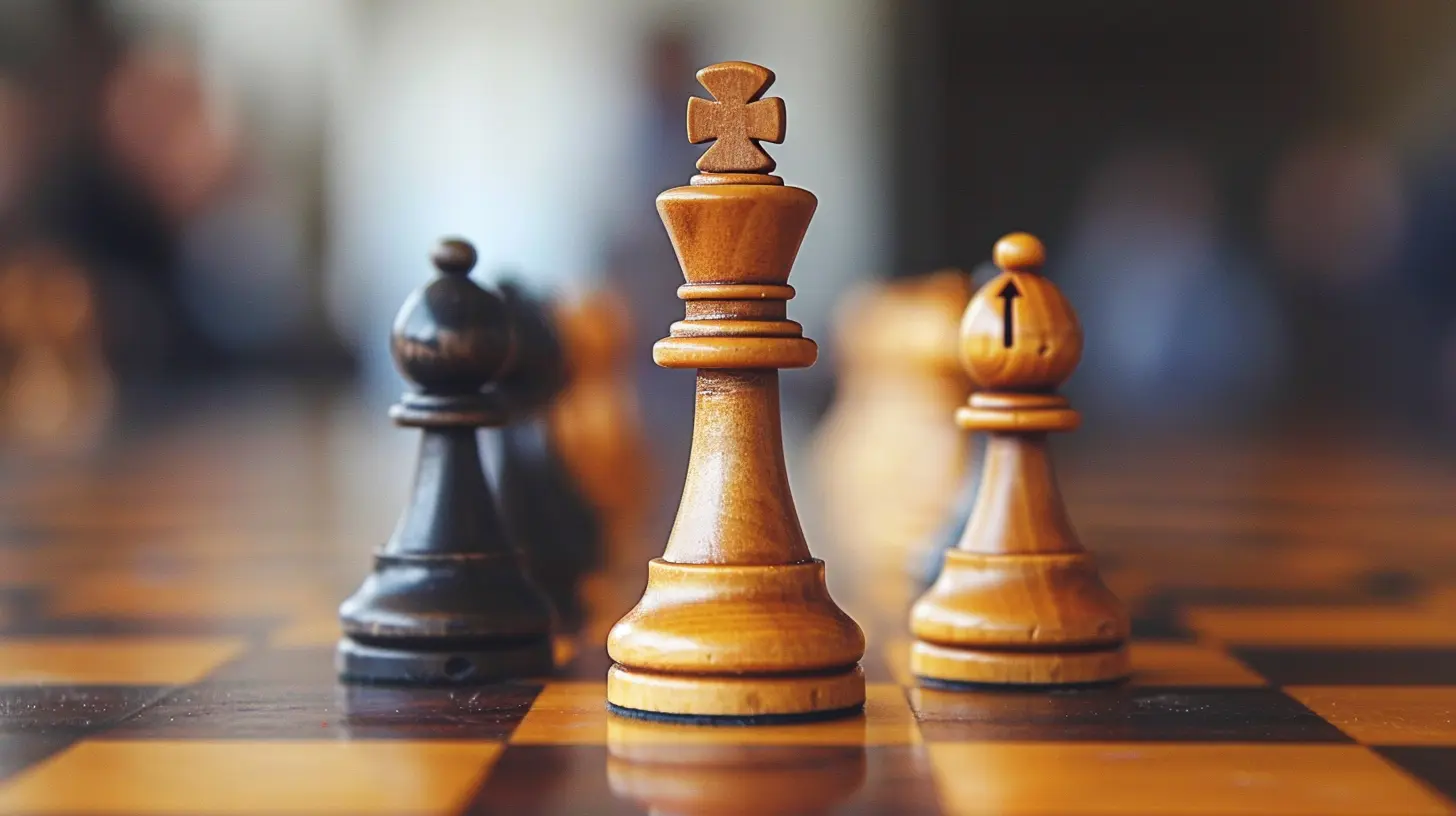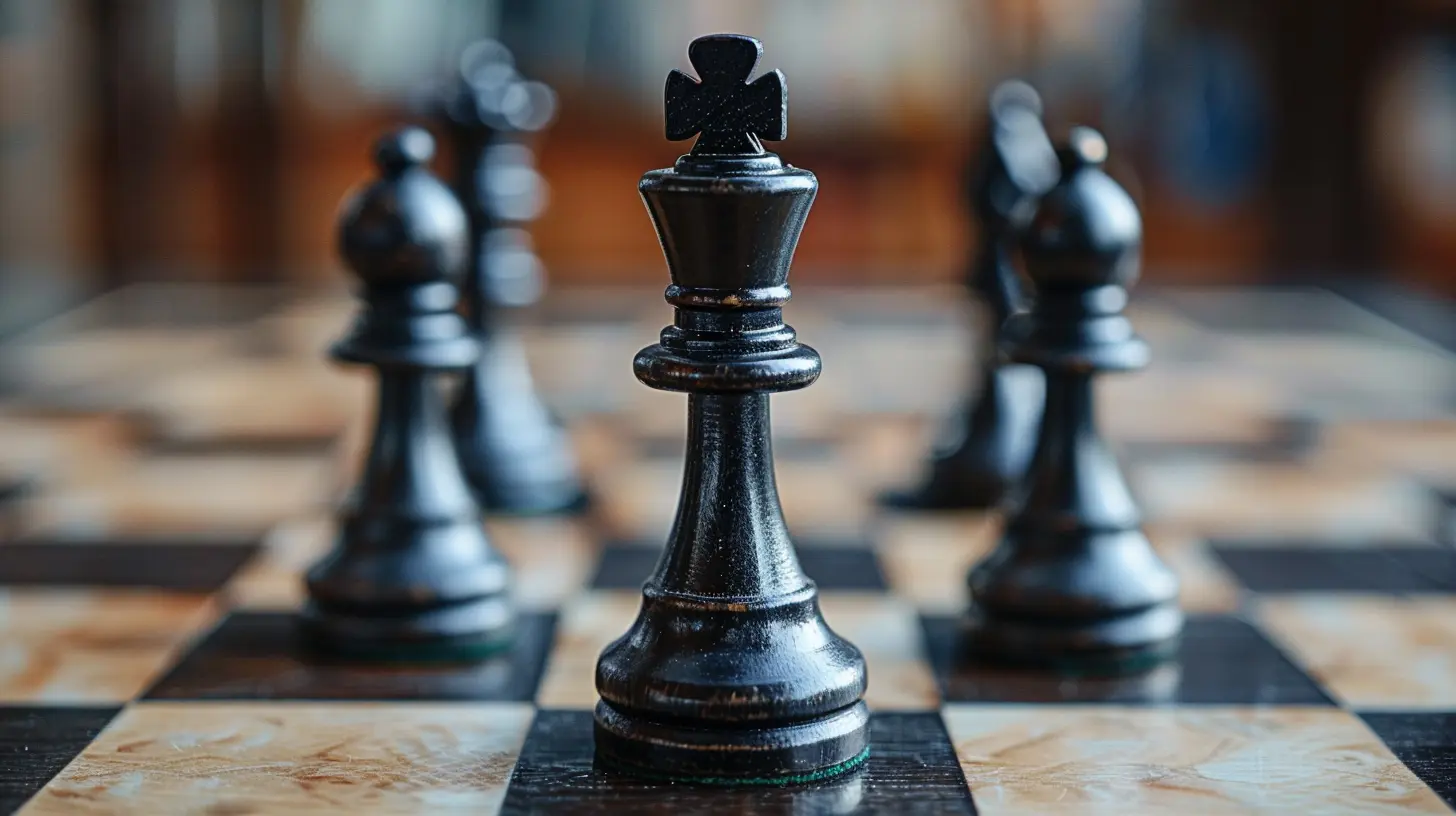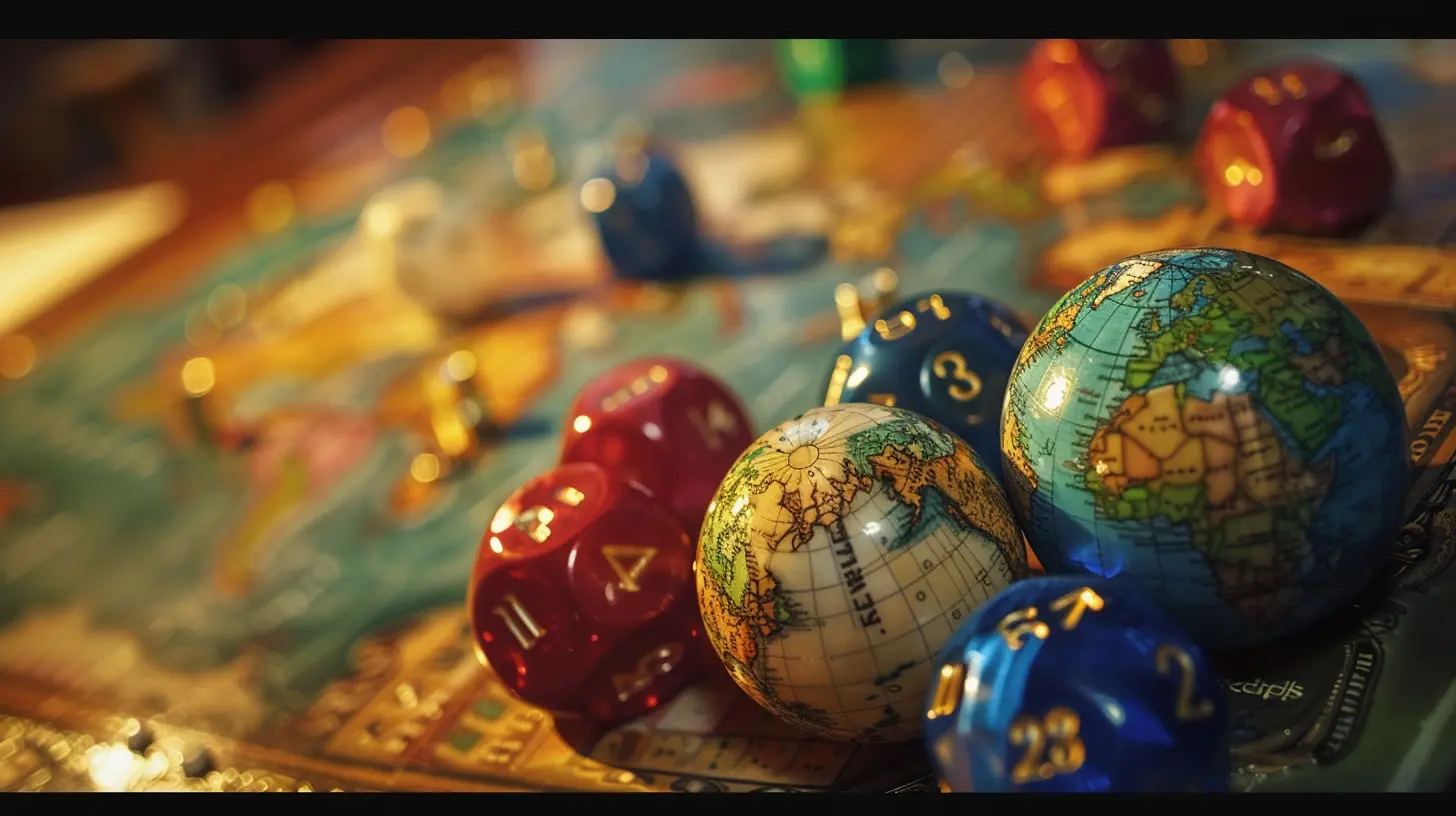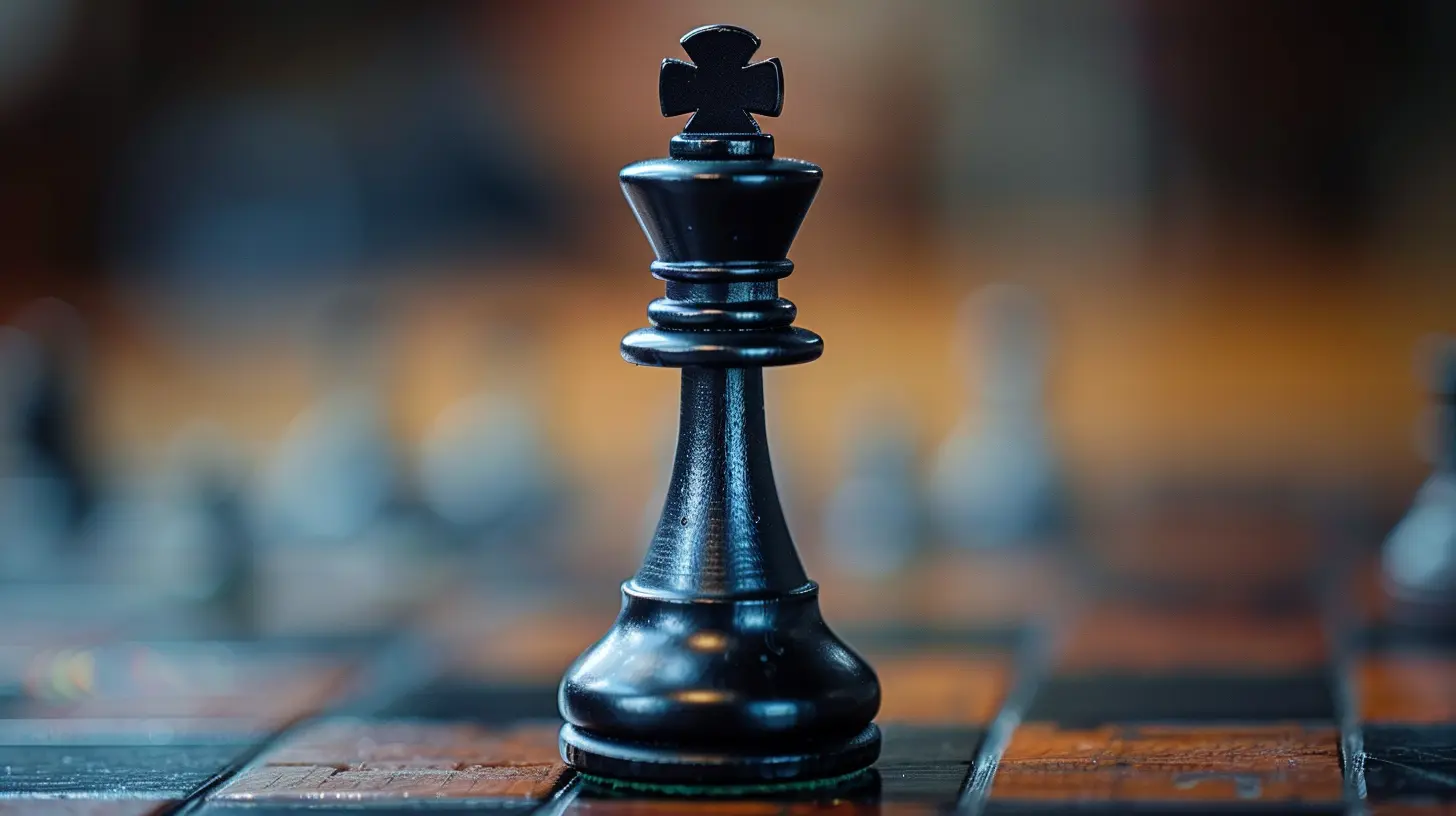The Psychology Behind Board Game Strategies
7 September 2025
Ever sat down to play Monopoly or Settlers of Catan and found yourself wondering why some people always win? Is it just luck, or is something deeper going on? Here's the thing—behind every clever move or risky trade in a board game, there’s a fascinating layer of psychology at play. Board games aren’t just about rolling dice or drawing cards; they’re mini battlegrounds of the mind, where your decisions reveal more about your brain than you might think.
Let’s pull back the curtain and peek into the psychological gears that drive the strategies players use in board games. Whether you're a casual player or a competitive strategist, understanding the mental mechanics can up your game big time.
Why Psychology Matters in Board Games
Before we dive into specific strategies, let’s answer the burning question: why should we even care about psychology in board games?Well, board games are more than mere pastimes—they're controlled environments full of decision-making, social interaction, problem-solving, and risk management. Everything that makes the human brain tick gets activated when we’re trying to win a game.
Think about it. When you're playing a strategy-heavy game like Risk or Carcassonne, you're not just reacting—you’re planning, predicting, manipulating, and adapting. All of this boils down to psychology.
Decision-Making: It's All in the Mind
Every move in a board game is a decision, and our brains love making decisions—but not always in the most logical way.1. Cognitive Biases
Players often fall prey to cognitive biases, like:- Confirmation Bias: You might ignore opponent strategies that contradict your own game plan.
- Loss Aversion: People hate losing more than they like winning, which can lead to overly cautious gameplay.
- The Gambler’s Fallacy: Thinking a certain outcome is "due" because it hasn't happened in a while? Totally illogical, but super common.
In games like Yahtzee or Clue, players often repeat the same strategies even when the odds aren't in their favor. That’s your brain clinging to comfort zones.
2. Risk vs. Reward
Psychologists call it the "risk-reward ratio," and it's huge in games. Do you play it safe and build slowly in Catan? Or do you go all in and try to steal Longest Road from a friend? Your brain weighs the potential reward against the possible consequences, often influenced by your personality.Risk-takers might love games like Betrayal at House on the Hill, while more cautious folks might gravitate towards games offering steady progression like Ticket to Ride.
Social Interaction: The Mind Game Within the Game
Ah, the sweet art of reading your opponents. One of the most exciting elements of board games is trying to outthink the other players. And that, my friend, is pure psychology.1. Bluffing and Deception
Games like Coup or The Resistance are practically psychology textbooks. Success often comes down to how well you can bluff or read a bluff.When you’re lying in a game, your brain juggles multiple layers of thought: your real goal, how you appear to others, and how they might react. It's a mental workout, and not everyone is naturally good at it. Those who can lie convincingly under pressure? They’re likely using a combination of social intuition and emotional control.
2. Group Dynamics
Ever notice how one dominant player always seems to control the table? Or how sometimes everyone gangs up on the leader?That’s group psychology in action. People tend to follow confident leaders, and social alliances in games often mirror real-world behavior. Understanding how to manipulate or resist groupthink can make or break your success in party games or co-op games.
Emotional Regulation: Staying Cool Under Pressure
Let’s be honest—some games get intense. One bad move and your whole strategy crumbles. This is where emotional control plays a big role.1. Tilt and Frustration
Poker players talk about going on "tilt"—making dumb decisions after a big loss. It happens in board games too. You mess up once, and suddenly you’re spiraling, throwing strategy out the window.The best players are those who manage their emotions. They don’t take losses personally, and they keep their cool—even when the dice roll against them. Emotional self-regulation is a real superpower in competitive gaming.
2. The Joy of Mastery
On the flip side, psychology also explains why winning feels so darn good. It taps into your brain’s reward system, releasing dopamine when you pull off a successful strategy. That’s why games are so addicting: they ride the rhythms of stress, anticipation, and reward.Personality Traits and Play Styles
Your personality speaks volumes through how you play. Are you aggressive? Defensive? Favor cooperation or competition?1. The Five Big Traits
Psychologists often use the Big Five personality traits—Openness, Conscientiousness, Extraversion, Agreeableness, and Neuroticism—to describe personality. Believe it or not, each of these plays out in board game strategy:- Openness: These players love creative games and won’t shy away from new strategies.
- Conscientiousness: They’re planners. Expect long-term strategies and meticulous gameplay.
- Extraversion: The social butterflies. They thrive in group games, alliances, and banter.
- Agreeableness: Cooperative to a fault, but perfect in co-op games like Pandemic.
- Neuroticism: Easily stressed, might avoid high-stakes games or fall apart under pressure.
2. Competitive vs. Cooperative Mindsets
Some people love crushing their opponents; others want everyone to have a good time. Neither is better—but understanding your own style (and recognizing others') can help you tailor your strategy. In semi-cooperative games, this self-awareness is key to balancing trust and betrayal.Pattern Recognition and Strategic Thinking
Let’s geek out for a second about one of the coolest parts of board games—pattern recognition.Our brains are wired to look for patterns. When you play games like Chess or Azul, you’re scanning the board, mentally mapping future moves, and trying to see the big picture. These games light up the prefrontal cortex, the brain's strategy hub.
1. Planning Ahead
Long-term strategists are like chess masters—they think three, four, even five steps ahead. This is a cognitive skill called “prospective thinking.” The better you get at it, the more complex strategies you can pull off.2. Adaptability
But plans don’t always work. What separates good players from great ones is adaptability. When the game changes—someone blocks your move, the rules shift, or luck turns—you need to pivot.That skill? It’s mental flexibility, and it's deeply tied to executive function in psychology. Kids actually develop this through games, which is why educational experts love board games for teaching critical thinking.
Memory and Game Performance
Memory isn’t just for trivia games. Whether you’re tracking dice rolls or remembering who took what route in Ticket to Ride, your brain is constantly working to store and recall information during gameplay.1. Working Memory
Working memory is like your brain’s notepad. It holds temporary information for immediate tasks—perfect for games that involve real-time tracking or remembering sequences.2. Long-Term Learning
Ever notice how you get better at a game the more you play it? That’s long-term memory at work. Your brain stores strategies, remembers outcomes, and adapts over time. This is why experienced players often seem unbeatable.The Role of Motivation
Why do people play games in the first place? Psychology says it’s all about motivation—and different people are motivated by different things.1. Intrinsic vs. Extrinsic Motivation
- Intrinsic: You play because it’s fun, challenging, or satisfying.- Extrinsic: You’re in it for the win, the trophy, or bragging rights.
Knowing what drives you can help shape your playstyle. If you’re intrinsically motivated, you might take more creative risks. If you’re extrinsically driven, you might focus more on efficiency and outcomes.
Final Thoughts: Playing the Mind Game
So, here we are at the finish line. What have we learned?The truth is, board games aren’t just games—they’re tiny psychological playgrounds. Every move you make, every strategy you hatch, every alliance you forge or break is influenced by the complex machinery of your mind.
Understanding the psychology behind board game strategies doesn’t just make you a better player—it makes the game more fun. You start to see the hidden battles going on beneath the surface. And the more you observe, the more you realize…
Winning starts in the mind.
all images in this post were generated using AI tools
Category:
Board GamesAuthor:

Emery Larsen
Discussion
rate this article
2 comments
Emory McLaury
Board games are more than fun—they're psychological battlegrounds. Embrace the mind games, master your strategies, and dominate your opponents unapologetically!
January 25, 2026 at 4:50 PM
Damian Brown
Who knew rolling dice could be a therapy session? Unraveling the mind games behind board strategies—because sometimes, conquering the tabletop is just as fun as conquering ourselves!
September 8, 2025 at 4:47 PM

Emery Larsen
Absolutely! Board games offer a unique blend of strategy and self-discovery, making every roll a step towards understanding ourselves better.


